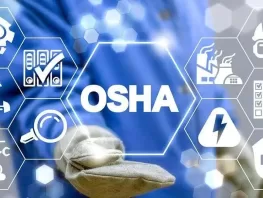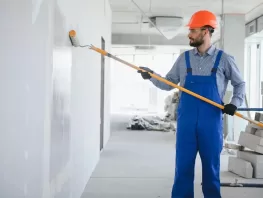
How to Choose the Right Epoxy Flooring for Industrial Facilities
Posted Dec 23, 2024 by Dave Scaturro

Withstanding heavy machinery, chemical spills, and constant traffic, epoxy flooring plays a crucial role in keeping industrial spaces functional, safe, and efficient. But with so many options available, how do you choose the right epoxy for your facility? This guide will help you select the best epoxy flooring for industrial facilities based on your unique needs.
Why Epoxy Flooring is Ideal for Industrial Facilities
Epoxy flooring is the preferred choice for industrial environments because of its numerous benefits, including:
Durability: Designed to withstand heavy foot traffic, machinery, and equipment without cracking or deteriorating.
Chemical and Abrasion Resistance: Protects floors from damage caused by spills, corrosive chemicals, and abrasions.
Enhanced Safety: Options for slip-resistant surfaces and high-gloss finishes improve traction and visibility, reducing accidents.
These features make epoxy flooring a versatile, long-term solution for industries like manufacturing, warehousing, food processing, and pharmaceuticals.
Key Factors to Consider When Choosing Epoxy Flooring
Selecting the best epoxy for industrial use involves assessing several critical factors:
Facility Type and Industry Requirements
Each industry has unique flooring needs. For example, food processing plants require seamless, hygienic surfaces to meet health and safety regulations, while manufacturing facilities may prioritize heavy-duty floors that resist wear and tear. Evaluate your facility’s requirements to ensure the epoxy flooring aligns with your operations.Chemical and Abrasion Resistance
Facilities handling oils, chemicals, or corrosive materials need epoxy formulations with superior resistance to prevent damage and maintain long-term performance. Choosing the right formulation will extend the life of your floors and minimize repair costs.Slip Resistance and Safety
Safety is a top priority in industrial settings, particularly in areas prone to spills or heavy foot traffic. Epoxy flooring enhanced with slip-resistant textures reduces the risk of accidents, creating a safer work environment for employees.Aesthetic Preferences and Branding
Epoxy flooring isn’t just functional—it can also enhance your facility’s appearance. With customizable colors, textures, and finishes, epoxy can match branding needs or improve workplace visibility and organization.Maintenance Needs and Longevity
Consider how much time and effort your team can dedicate to maintenance. Epoxy flooring is low-maintenance, but selecting the right type ensures it remains durable and cost-effective for years to come.
Types of Epoxy Flooring and Their Uses
Understanding the different types of epoxy flooring will help you choose the right one for your facility:
Self-Leveling Epoxy: Ideal for smooth or new surfaces, this seamless finish is easy to clean and perfect for warehouses or manufacturing spaces.
Anti-Static Epoxy: Essential for facilities with sensitive electronics, such as pharmaceutical plants and manufacturing environments, where static control is critical.
Gravel or Mortar Epoxy: Thicker and more durable, these epoxy formulations handle heavy loads and high-impact environments, like industrial plants or machine shops.
Quartz-Filled Epoxy: Perfect for areas requiring slip resistance and aesthetic appeal, such as lobbies, cafeterias, or employee common spaces.
Partnering with a Professional Epoxy Flooring Contractor
Selecting and installing epoxy flooring requires expertise to ensure long-term success. By partnering with experienced professionals like Alpine Painting & Sandblasting Contractors, you gain access to skilled teams, advanced equipment, and customized solutions tailored to your facility’s needs. Proper installation guarantees the durability and performance of your epoxy flooring for years to come.
Ready to upgrade your floors? Contact Alpine Painting & Sandblasting today for a consultation.
Learn more about Alpine’s industrial flooring services here.









